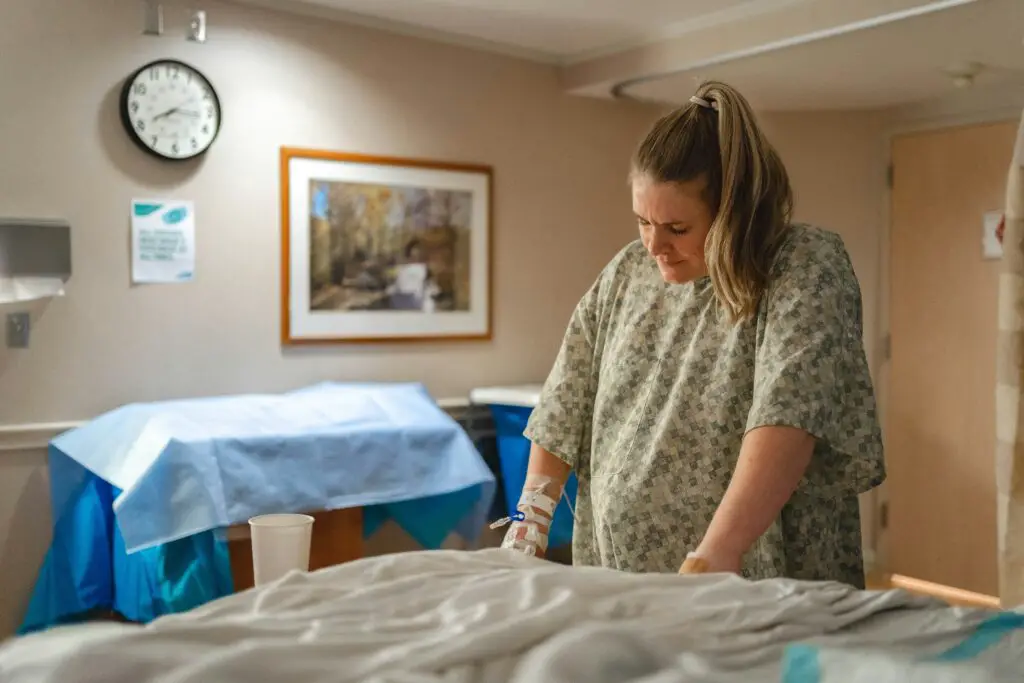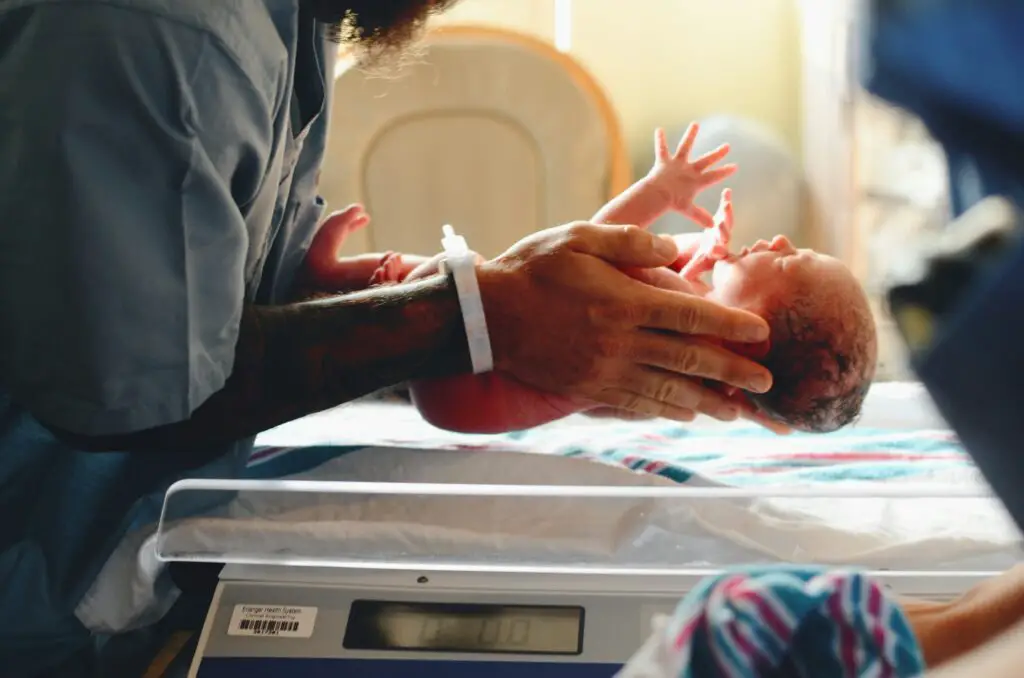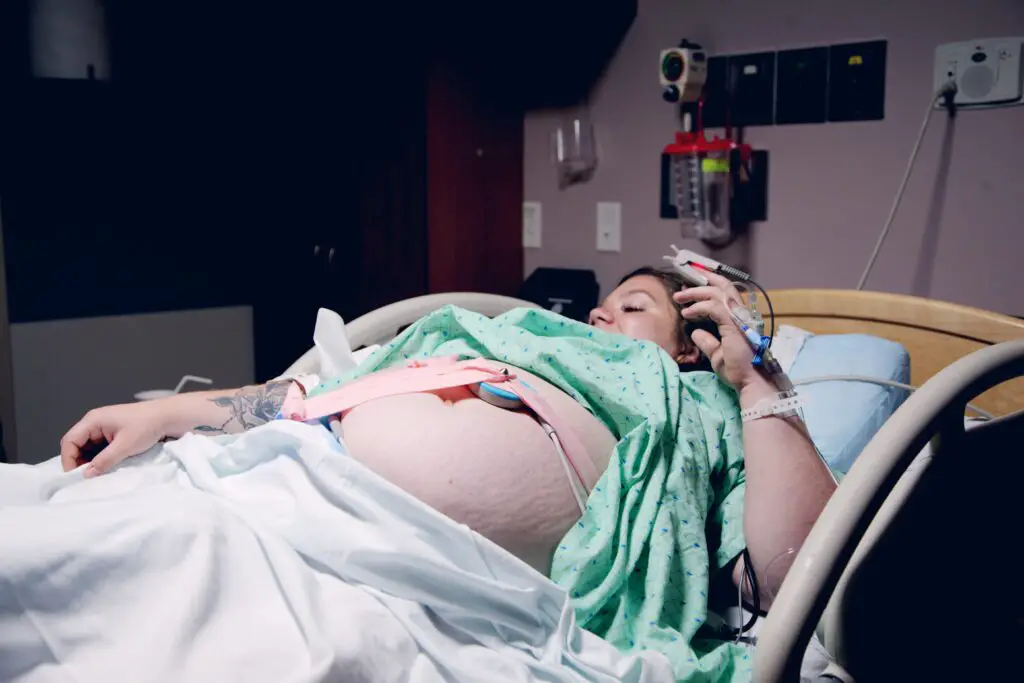Related Posts
Picture this: you are an expecting mother preparing to give birth. Instead of seeing the smiling faces of your friends and family around you, you face the tight grip of handcuffs and the cold sight of prison walls. Despite sounding like a work of fiction, this is the unfortunate experience of the nearly 2,000 women who give birth behind bars every year. Prison can be an incredibly harrowing experience, especially for pregnant women who face a unique set of hardships.
Pregnant Woman In Prison Gives Birth on Camera
In a shocking viral video release, a woman gave birth alone in her Denver County Jail cell. The woman, named Diana Sanchez, was far along in her pregnancy while she was serving time in the jail. Upon feeling the pain of contractions, she began to request emergency medical care. Sadly, her pleas were left unanswered for hours. Even her water broke before jail personnel began to pay real attention.
Shockingly, despite her pain and emergency medical status, they didn’t take Diana to a facility equipped to treat her. Instead, they left her in her cell for about five hours to give birth. Jail nurses visited occasionally to provide cleaning supplies and minimal medical aid, but for most of the experience, they left her alone and terrified.
Even more tragic, Diana reported that nurses were standing just beyond her cell door, watching the whole event occur. Shortly after she gave birth to a beautiful boy, the nursing staff came in and separated him from his mother.
An Attorney’s Opinion On The Matter
If you’re like most people who watched the video, you were probably outraged by how the situation unfolded. Many are questioning the legality of how the prison system treated Diana Sanchez. Popular attorney Ugo Lord offers some professional insight into the laws regarding the treatment of inmates in prisons.
United States prisons have no legal obligation to take prisoners to the hospital if they are not feeling well. As an inmate, the government requires prisons to keep you safe and offer adequate care for your health needs. Many prisons meet these needs by having in-house equipment or hiring healthcare professionals.
Despite these common workarounds, the woman in the video was experiencing much more than a typical health issue. Birth is a complicated event requiring much care, caution, and equipment. For instance, most women benefit from having multiple nurses, doctors, pain medications, and professional supervision. Most jails lack the medical equipment to meet these needs. In the video, the woman didn’t receive the necessary care. The jail failed to provide health care and should have taken her to the hospital.
Fortunately, the woman sought restitution for the various damages and mistreatments she endured during the situation. After two lawsuit settlements, she and her son will receive $480,000 from the hospital and city council.
Rights of Pregnant Women in Prison

Every inmate should receive adequate care for any medical issues they experience. Most systems use the term “right to basic health care” to describe this responsibility. To serve these needs, most prisons have in-house equipment and personnel. This allows them to treat inmates safely without the need for complicated transportation.
Most medical treatments are strictly regulated in prison environments. Medications are heavily supervised and administered in a single location where staff closely monitor prisoners.
These essential medical devices are not enough to treat pregnant women in prison. Most jails acknowledge this and organize transportation for the women to receive hospital care.
Despite this allowance of care, pregnant women in prison experience a slew of hardships and difficulties during this process. For instance, most prisons shackle women during transportation. On top of the humiliation this can bring in public, shackling pregnant women can increase the chances of trips and falls that could injure the baby. Furthermore, women usually give birth alone and face immediate separation from their children. This system forces babies into the care of family members or foster care while leaving pregnant women in prison to deal with various postpartum issues.
In summation, most pregnant women in prison get to spend a maximum of 24 hours with their child before authorities take it away.
For the 5-10% of female prisoners who enter the system pregnant, these standards are damaging even in the best of cases.
Significant Issues Prompting Change For Pregnancy In Prison

In contrast to the concept of providing “basic health care,” most pregnancies in prison ended in hardship for everyone involved. Women face lasting emotional and physical issues, while children end up in the care of other families or foster systems.
With the popularity of viral videos that expose these problems, more people are becoming concerned with the treatment of pregnant women in prison. Schools as prestigious as Harvard have even been the place of study for these complicated issues. As you can guess, most studies reveal the harsh reality: pregnant women in prison do not receive their “right to basic health care.”
Legal authorities are even calling into question whether the treatment of pregnant women violates their 8th Amendment right against cruel and unusual punishments.
While the system is still incredibly flawed and leads to thousands of damaged individuals, the publicity brought to the issue instills hope in many. Moving forward, people are sure that conversations regarding the topic may bring much-needed change that could help thousands of pregnant women in prison every year.

